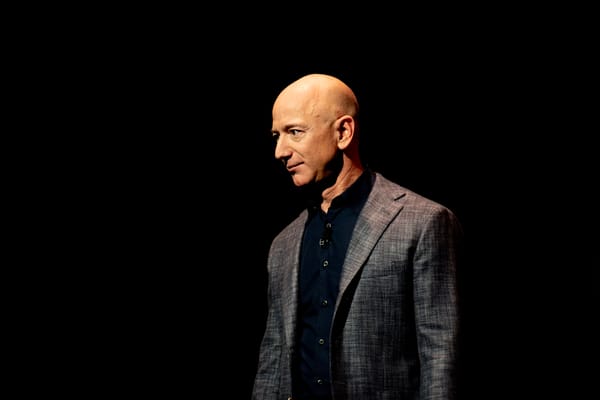Jane Fraser's Career Journey: From Analyst to CEO

Jane Fraser is a well-known name in the banking industry, having recently made history as the first woman to become CEO of a major Wall Street bank. She has had an impressive career journey, marked by several notable achievements and milestones. Fraser's ascent to the top of Citigroup is a testament to her hard work, dedication, and leadership skills.
Fraser joined Citigroup in 2004 as Head of Client Strategy in the investment and global banking division. She quickly rose through the ranks, becoming Global Head of Strategy and Mergers and Acquisitions in 2007, a position she held until 2009. Fraser then took on several other roles within the company, including serving as CEO of Citi's Latin American operations, before being appointed President of Citi and CEO of Global Consumer Banking in 2019. Her extensive experience in various roles within Citigroup has prepared her well for the CEO position.
Fraser's career journey is an inspiration to many, particularly women in the banking industry. She has broken barriers and shattered glass ceilings, proving that hard work and dedication can lead to success. Her leadership and vision for Citigroup's future will undoubtedly shape the company's trajectory for years to come.
Early Life and Education
Jane Fraser was born in Scotland in 1967. She grew up in an academic family and was the youngest of three children. Her father was a professor of economics, and her mother was a teacher. Fraser was a bright student and excelled in her studies. She attended the University of Cambridge, where she studied economics and graduated with a degree in economics in 1989.
After graduation, Fraser began her career at Goldman Sachs in London, where she worked as a mergers and acquisitions analyst. She quickly proved herself to be a talented and ambitious employee. Her thirst for knowledge and adventure led her to pursue an MBA degree at Harvard Business School, which she earned in 1994.
During her time at Harvard, Fraser was a Baker Scholar, which is a distinction awarded to the top 5% of the graduating class. She also served as the co-president of the Women's Student Association. After completing her MBA, Fraser returned to Goldman Sachs, where she worked in the mergers and acquisitions department in New York.
Fraser's early life and education laid the foundation for her successful career in finance. She developed a strong work ethic and a passion for learning that would serve her well throughout her career.
Beginning of Career
Jane Fraser started her career in the late 1980s after completing her undergraduate degree in economics from Cambridge University. She began her career in the UK as a consultant at McKinsey & Company, where she worked for five years. During her time at McKinsey, she focused on the financial services industry and gained experience in strategy development and implementation.
First Professional Roles
After leaving McKinsey, Jane Fraser moved to New York City and joined Goldman Sachs in 1994. At Goldman Sachs, she worked in the mergers and acquisitions division, where she specialized in the financial institutions sector. During her time at Goldman Sachs, she gained valuable experience in deal structuring and execution.
Entry into Banking
In 2004, Jane Fraser joined Citigroup as the Head of Client Strategy in the investment and global banking division. She was responsible for developing and executing the bank's strategy for its institutional clients. In 2007, she was promoted to Global Head of Strategy and Mergers and Acquisitions, where she oversaw the bank's mergers and acquisitions activities worldwide.
Jane Fraser's experience in strategy and mergers and acquisitions proved to be valuable, and in 2009, she was appointed CEO of Citi's private bank. During her tenure as CEO of the private bank, she was responsible for managing the bank's wealth management business and expanding its presence in emerging markets.
Overall, Jane Fraser's early career experiences in consulting and investment banking provided her with a solid foundation in strategy development and execution, which proved to be valuable throughout her career.
Rise at Citigroup

Jane Fraser joined Citigroup in 2004 and has since then held several key positions in the company. Her career journey at Citigroup has been marked by several notable achievements, which have earned her recognition both within the company and in the banking industry.
Key Positions Held
Fraser's first role at Citigroup was in the Corporate and Investment Banking division. She later served as the Global Head of Strategy and Mergers & Acquisitions for Citi from 2007 to 2009. In 2009, Fraser was appointed as the Chief Executive Officer of Citi's Global Private Bank, where she led the bank's wealth management business globally. In October 2019, Fraser was named President of Citi and CEO of the bank's huge Global Consumer Banking unit. This made her the first woman to hold this position in the company's history.
Leadership Roles
Fraser's leadership roles at Citigroup have been marked by her ability to drive change and implement innovative strategies. During her tenure as the CEO of Citi's Global Private Bank, she led the bank's expansion into new markets and introduced new products and services to meet the changing needs of clients. Fraser's leadership skills were also evident in her role as the Global Head of Strategy and Mergers & Acquisitions, where she played a key role in the company's acquisition of Nikko Cordial Securities in Japan.
In her current role as President of Citi and CEO of the bank's Global Consumer Banking unit, Fraser is responsible for driving growth and profitability across the bank's consumer businesses. She has been instrumental in driving the bank's digital transformation, which has enabled it to provide more personalized and innovative solutions to customers. Under her leadership, the bank has also launched several initiatives aimed at promoting financial inclusion and empowering underserved communities.
Overall, Fraser's rise at Citigroup has been marked by her ability to take on new challenges and deliver results. Her leadership skills, strategic vision, and commitment to innovation have earned her a reputation as one of the most influential women in the banking industry.
CEO of Citigroup
Appointment
Jane Fraser was appointed as the CEO of Citigroup in March 2021, succeeding Michael Corbat. She became the first woman to lead a major Wall Street bank. Prior to her appointment, Fraser served as the President of Citigroup and CEO of Global Consumer Banking. She has been with the company for over 16 years, holding various leadership positions across the organization.
Strategic Initiatives
Since becoming CEO, Fraser has launched a multi-year strategy to transform, simplify, and modernize the bank for the digital age. The strategy includes streamlining the company's product offerings and investing in technology to enhance the customer experience. Fraser has also emphasized the importance of improving the bank's risk management practices and strengthening its culture.
In addition to these initiatives, Fraser has made a commitment to increase diversity and inclusion across the organization. She has set a goal of having women make up 40% of senior management positions by 2025 and has pledged to invest $1 billion in initiatives aimed at closing the racial wealth gap.
Challenges Faced
Fraser's appointment came at a challenging time for Citigroup. The bank has faced regulatory scrutiny and fines in recent years for issues related to risk management and anti-money laundering practices. Additionally, the COVID-19 pandemic has had a significant impact on the bank's financial performance.
To address these challenges, Fraser has focused on improving the bank's risk management practices and strengthening its balance sheet. She has also emphasized the importance of maintaining a strong capital position and improving operational efficiency.
Overall, Fraser's appointment as CEO of Citigroup marks a significant milestone for both the company and the financial industry as a whole. Her strategic initiatives and commitment to diversity and inclusion position Citigroup for continued success in the years to come.
Industry Impact

Jane Fraser's impact on the banking industry has been significant. She has been a trailblazer for women in finance and has been recognized for her innovative thinking and advocacy for diversity and inclusion.
Innovation and Changes
During her tenure at Citigroup, Fraser has been known for her focus on innovation and technology. She has been a driving force behind the bank's efforts to modernize its operations and improve the customer experience. Under her leadership, Citigroup has invested heavily in digital platforms and has made significant strides in areas such as mobile banking and online payments.
Fraser has also been instrumental in driving change within the industry. She has been a vocal advocate for greater diversity and inclusion, both within Citigroup and across the finance sector as a whole. She has pushed for greater representation of women and minorities in senior leadership roles and has worked to create a more inclusive culture within the bank.
Advocacy and Representation
Fraser's impact on the industry has extended beyond her work at Citigroup. She has been a vocal advocate for greater representation of women in finance and has spoken out on issues such as the gender pay gap and the need for more women in senior leadership positions.
Fraser has also been recognized for her efforts to support women entrepreneurs. She has been a strong supporter of initiatives such as the Women Entrepreneurs Opportunity Facility, which provides financing and support to women-led businesses in emerging markets.
Overall, Fraser's impact on the banking industry has been significant. She has been a driving force behind innovation and change, and has been a passionate advocate for greater diversity and inclusion. Her leadership has set an example for others in the industry to follow, and her legacy is sure to be felt for years to come.



